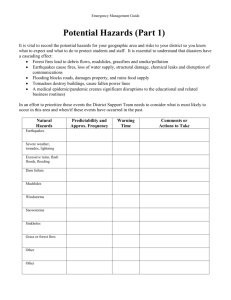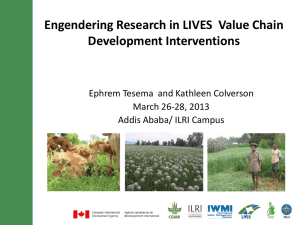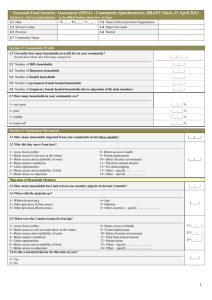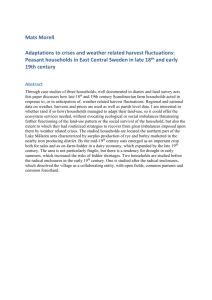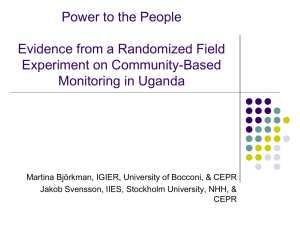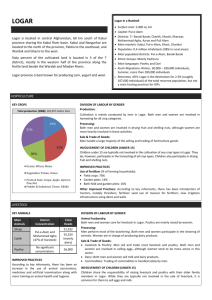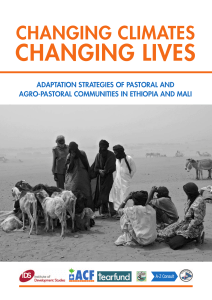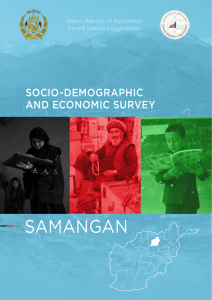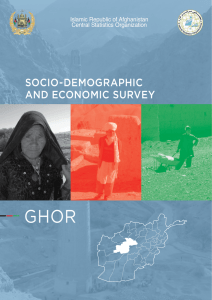Mini-Case Studies
advertisement
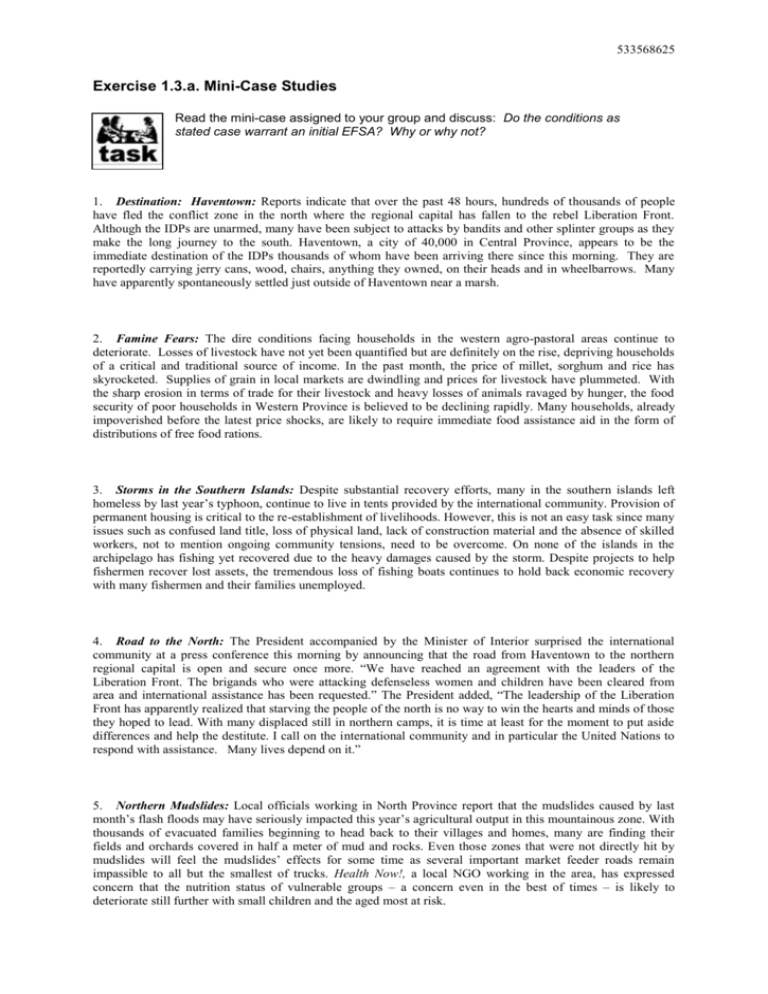
533568625 Exercise 1.3.a. Mini-Case Studies Read the mini-case assigned to your group and discuss: Do the conditions as stated case warrant an initial EFSA? Why or why not? 1. Destination: Haventown: Reports indicate that over the past 48 hours, hundreds of thousands of people have fled the conflict zone in the north where the regional capital has fallen to the rebel Liberation Front. Although the IDPs are unarmed, many have been subject to attacks by bandits and other splinter groups as they make the long journey to the south. Haventown, a city of 40,000 in Central Province, appears to be the immediate destination of the IDPs thousands of whom have been arriving there since this morning. They are reportedly carrying jerry cans, wood, chairs, anything they owned, on their heads and in wheelbarrows. Many have apparently spontaneously settled just outside of Haventown near a marsh. 2. Famine Fears: The dire conditions facing households in the western agro-pastoral areas continue to deteriorate. Losses of livestock have not yet been quantified but are definitely on the rise, depriving households of a critical and traditional source of income. In the past month, the price of millet, sorghum and rice has skyrocketed. Supplies of grain in local markets are dwindling and prices for livestock have plummeted. With the sharp erosion in terms of trade for their livestock and heavy losses of animals ravaged by hunger, the food security of poor households in Western Province is believed to be declining rapidly. Many households, already impoverished before the latest price shocks, are likely to require immediate food assistance aid in the form of distributions of free food rations. 3. Storms in the Southern Islands: Despite substantial recovery efforts, many in the southern islands left homeless by last year’s typhoon, continue to live in tents provided by the international community. Provision of permanent housing is critical to the re-establishment of livelihoods. However, this is not an easy task since many issues such as confused land title, loss of physical land, lack of construction material and the absence of skilled workers, not to mention ongoing community tensions, need to be overcome. On none of the islands in the archipelago has fishing yet recovered due to the heavy damages caused by the storm. Despite projects to help fishermen recover lost assets, the tremendous loss of fishing boats continues to hold back economic recovery with many fishermen and their families unemployed. 4. Road to the North: The President accompanied by the Minister of Interior surprised the international community at a press conference this morning by announcing that the road from Haventown to the northern regional capital is open and secure once more. “We have reached an agreement with the leaders of the Liberation Front. The brigands who were attacking defenseless women and children have been cleared from area and international assistance has been requested.” The President added, “The leadership of the Liberation Front has apparently realized that starving the people of the north is no way to win the hearts and minds of those they hoped to lead. With many displaced still in northern camps, it is time at least for the moment to put aside differences and help the destitute. I call on the international community and in particular the United Nations to respond with assistance. Many lives depend on it.” 5. Northern Mudslides: Local officials working in North Province report that the mudslides caused by last month’s flash floods may have seriously impacted this year’s agricultural output in this mountainous zone. With thousands of evacuated families beginning to head back to their villages and homes, many are finding their fields and orchards covered in half a meter of mud and rocks. Even those zones that were not directly hit by mudslides will feel the mudslides’ effects for some time as several important market feeder roads remain impassible to all but the smallest of trucks. Health Now!, a local NGO working in the area, has expressed concern that the nutrition status of vulnerable groups – a concern even in the best of times – is likely to deteriorate still further with small children and the aged most at risk.
